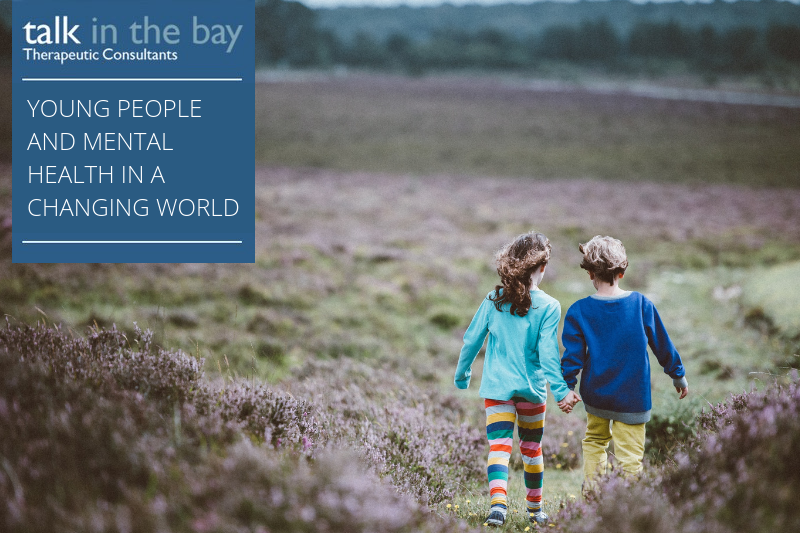World Mental Health Day 2018 | Focus on young children and mental health in a changing world
WHAT DO WE KNOW?
Half of all mental illnesses begin by the age of 14 and three-quarters by mid-20s. The leading cause of disability in young people in all regions are neuropsychiatric conditions. (World Health Organisation, 2018). Young people experience a huge amount of change through their development whether it is moving house, parents separating or changing schools, leaving home, starting university or work. Change is bound to induce a variety of emotions, you may feel excited or you may feel sad, angry or fearful. It’s normal to feel these emotions but it’s not ok for these emotions to rule our lives. These changes can be as much out of our control as the changes our bodies go through when we grow up.
Recent reports tell us that overall the number of referrals to Child and Adolescent Mental Health Service (CAMHS) has risen by over a third in the last three years and unfortunately the major factor is lack of funding and services to support children in those settings (Royal College of Paediatrics and Child Health, 2018). So what can we do if we are suffering, we are close to those who are suffering or want to help build resilience for our young people?
AT SCHOOL
Young Minds are campaigning for the Government to rebalance the education system to take into account the importance of wellbeing as much as their academic achievement and you can be part of this. In only a year and a half Young Minds and their activists has provided Prime Minister, MPs and Lords with important information regarding the issues pupils face and put their stamps on Government’s Select Committee Inquiry Report, investigating mental health and education as well as influencing the government’s Green Paper on children’s mental health, including proposals on increasing mental health support in schools. (Young Minds, 2018)
Charlotte’s Mum tells the story of how a house and school move affected her daughter and explains how she became insecure about her abilities and generally disinterested in anything that had to do with school. A quote from this story reflects the great work Place2Be offer children:
“When I asked Charlotte if she’d like to tell me about her one to one sessions, she said “it’s a secret” with a smile and I knew then that the sessions were meeting her emotional needs.”
Place2Be work all over the UK to provide emotional and therapeutic services in primary and secondary schools. They build resilience through talking, creative work and play and help them cope with bullying, bereavement, domestic violence, family breakdown, neglect and trauma as well as training school professionals. They can also help parents develop more self-confidence, becoming more at ease in their parenting roles and develop positive relationships with their children (Place2Be, 2018).
AT HOME
Young Mind’s Parents Survival Guide and Place2Be’s advice on supporting your child’s mental health emphasise what you can do as a parent:
- Self-Awareness – dedicated time with your child to listen and play, quiet activities to encourage your child to open up naturally, include your children in solving their problems.
- Relationships & communication – Make sure they know you love them, be honest about your feelings – you don’t have to be perfect, set clear boundaries – tell them why and don’t be afraid to make tough decisions.
- Play – this provides bonding, learning and a powerful insight if the words aren’t accessible to them. Therapists at Talk in the Bay use play techniques such as role play and creative activities which can reveal factors behind negative behaviours.
- Look after yourself – You are the role model. Ask your friends and family for help, have a night in with a friend or watch a film instead of cleaning and if things are really getting on top of you seek professional help with your GP or private practice.
(Young Minds, 2018 & Place2Be, 2018)
Give yourself and your children time – remember worrying or difficult behaviour might be short-lived. There are wonderful resources available all over the UK, such as Relax Kids, who work to promote children’s wellbeing with playful relaxation classes and provide products for parents and children to explore this at home too.



